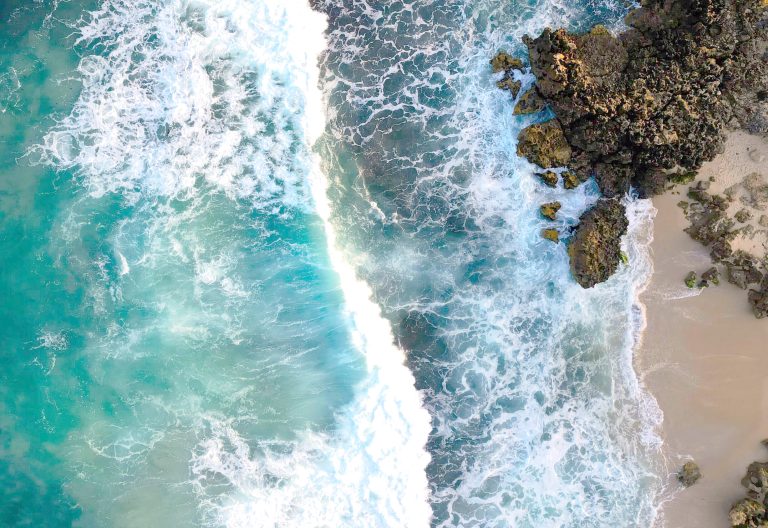Ocean talks to seek urgent protection of troubled seas

The third United Nations Ocean Conference opened in Nice, France, on June 9, 2025, amid rising pressure for nations to turn decades of promises into tangible protection for the seas.
Ahead of the conference on Sunday, June 8, 2025, dozens of research and exploration vessels from around the world set sail off the coast of Nice to usher in the Ocean Summit 2025 and celebrate World Oceans Day.
The summit this week will push for the ratification of the High Seas Treaty to enable conservation in international waters.
The theme of Sunday’s event was ‘Ocean Wonders’, highlighting vessels sailing across Nice’s Baie des Anges, or Bay of Angels.
According to Associated Press writer Annika Hammerschlag, the event was meant to spotlight the beauty and importance of the ocean, while urging world leaders not to lose sight of its value as they make decisions about the planet’s future.
Thousands of delegates, including heads of state, scientists, and environmental advocates, in Nice are expected to confront growing threats to the ocean and the need to transform pledges into protection.
Ratification of the High Seas Treaty, adopted in 2023, would for the first time allow countries to establish marine protected areas (MPAs) in international waters, which cover nearly two-thirds of the ocean and remain largely ungoverned.
Experts say humanity and the planet are in the middle of a biodiversity and climate crisis, demanding protection of the ocean to address them. Even in waters designated as protected, enforcement falls short.
Global emergency
Many countries, including Ocean Conference 2025 host France, face criticism from environmental groups over weak regulation and continued industrial activity within their MPAs.
Moments like the ocean summit are crucial to changing all that, note the experts.
The UN says the threats are a global emergency facing the world’s oceans, threatened with rising temperatures, plastic pollution choking marine life, and relentless overexploitation of fish and other resources.
Just 2.7 per cent of the global ocean is effectively protected from destructive activities like industrial fishing and deep-sea mining – far below the global goal of 30 per cent by 2030, according to scientists.
The world needs to establish at least 190,000 small MPAs in coastal regions alone and an additional 300 large MPAs in remote offshore areas globally by 2030 to meet the target set in an international agreement calling on nations to protect and restore the ocean across a range of key conservation areas.
With only five years left to deliver the biodiversity target nations agreed to, a reality check called for much higher ambitions by governments to achieve this goal during last November’s UN Convention on Biodiversity (COP16) summit in Cali, Colombia.
Despite the proven benefits of coastal MPAs to nature and people, MPAs aren’t being established at the pace required to achieve the global target. Experts cite three main obstacles to scaling coastal MPAs – lack of awareness, inadequate governance, and the wrong business models.
Several countries are expected to announce new MPAs during the 2025 UN Ocean Conference, along with bans on bottom trawling and other destructive practices within their existing MPA networks.
Earlier on May 8, 2025, renowned broadcaster and biologist David Attenborough, 99, attended the premiere of his acclaimed film ‘Ocean With David Attenborough’ described as “a brutal, beautiful wake-up call from the sea”.
“An ominous chain unspools through the water. Then comes chaos. A churning cloud of mud erupts as a net ploughs the seafloor, wrenching rays, fish and a squid from their home in a violent swirl of destruction. This is industrial bottom trawling. It’s not CGI (computer-generated imagery). It’s real. And it’s legal,” AP’s Hammerschlag narrates a scene from the film.
‘Ocean With David Attenborough’ is a brutal reminder of how little we see and how much is at stake.
The film is both a sweeping celebration of marine life and a stark exposé of the forces pushing the ocean toward collapse.
British naturalist Attenborough anchors the film with a deeply personal reflection: “After living for nearly a hundred years on this planet, I now understand that the most important place on Earth is not on land, but at sea”.
The film traces Attenborough’s lifetime – an era of unprecedented ocean discovery – through the lush beauty of coral reefs, kelp forests and deep-sea wanderers, captured in breathtaking, revelatory ways.
It’s “more urgent, more unflinching”; never-before-seen footage of mass coral bleaching, dwindling fish stocks, and industrial-scale exploitation reveals just how vulnerable the sea has become.
The film’s power lies not only in what it shows but in how rarely such destruction is witnessed, according to Hammerschlag.
Pursuing recovery
“In one harrowing scene, mounds of unwanted catch are dumped back into the sea, already dead. About 10 million tonnes (9 million metric tonnes) of marine life are caught and discarded each year as bycatch. In some bottom trawl fisheries, discards make up more than half the haul”.
Still, ‘Ocean’ is no eulogy, she adds, “Its final act offers a stirring glimpse of what recovery can look like: kelp forest rebounding under protection, vast marine reserves teeming with life and the world’s largest albatross colony thriving in Hawaii’s Papahānaumokuākea Marine National Monument. These aren’t fantasies; they’re evidence of what the ocean can become again if given the chance”.
Timed to World Oceans Day and the UN Ocean Conference in Nice, the film arrives amid a growing global push to protect 30 per cent of the ocean by 2030 – a goal endorsed by more than 190 countries. But today, just 2.7 per cent of the ocean is effectively protected from harmful industrial activity.
The film’s message is clear: The laws of today are failing the seas. So-called “protected” areas often aren’t. And banning destructive practices like bottom trawling is not just feasible – it’s imperative.
As always, Attenborough is a voice of moral clarity, explains Hammerschlag. “This could be the moment of change,” he says. ‘Ocean’ gives us the reason to believe – and the evidence to demand – that it must be.
The Ocean Rise and Coastal Resilience Summit opened ahead of the UN Ocean Conference. Representatives of coastal cities and regions, as well as from island states, met to discuss how to secure their future against the multidimensional threats posed by climate change amid sea level rise.
Launching the Ocean Rise and Coastal Resilience Coalition, Nice Mayor and Coalition President Christian Estrosi said the Ocean is “sick” because of human actions, with unpredictable consequences.
“Multilateralism is more vital than ever, with urgent action required in a shifting world with tensions on the rise,” he said.
UN Under-Secretary for Economic and Social Affairs Li Junhua reiterated the global body’s commitment to supporting vulnerable coastal communities, saying the coalition was important in mobilising leadership and finance, disseminating knowledge, building capacity, and amplifying coastal voices in international ocean governance.
UN Secretary-General’s Special Envoy for the Ocean emphasised the urgency of strengthening global cooperation to address sea level rise, underscoring intergenerational justice.
Costa Rica Environment and Energy Minister Franz Tattenbach Capra called for building a global alliance for coastal resilience through knowledge sharing and investment in nature-based solutions (NbS).











